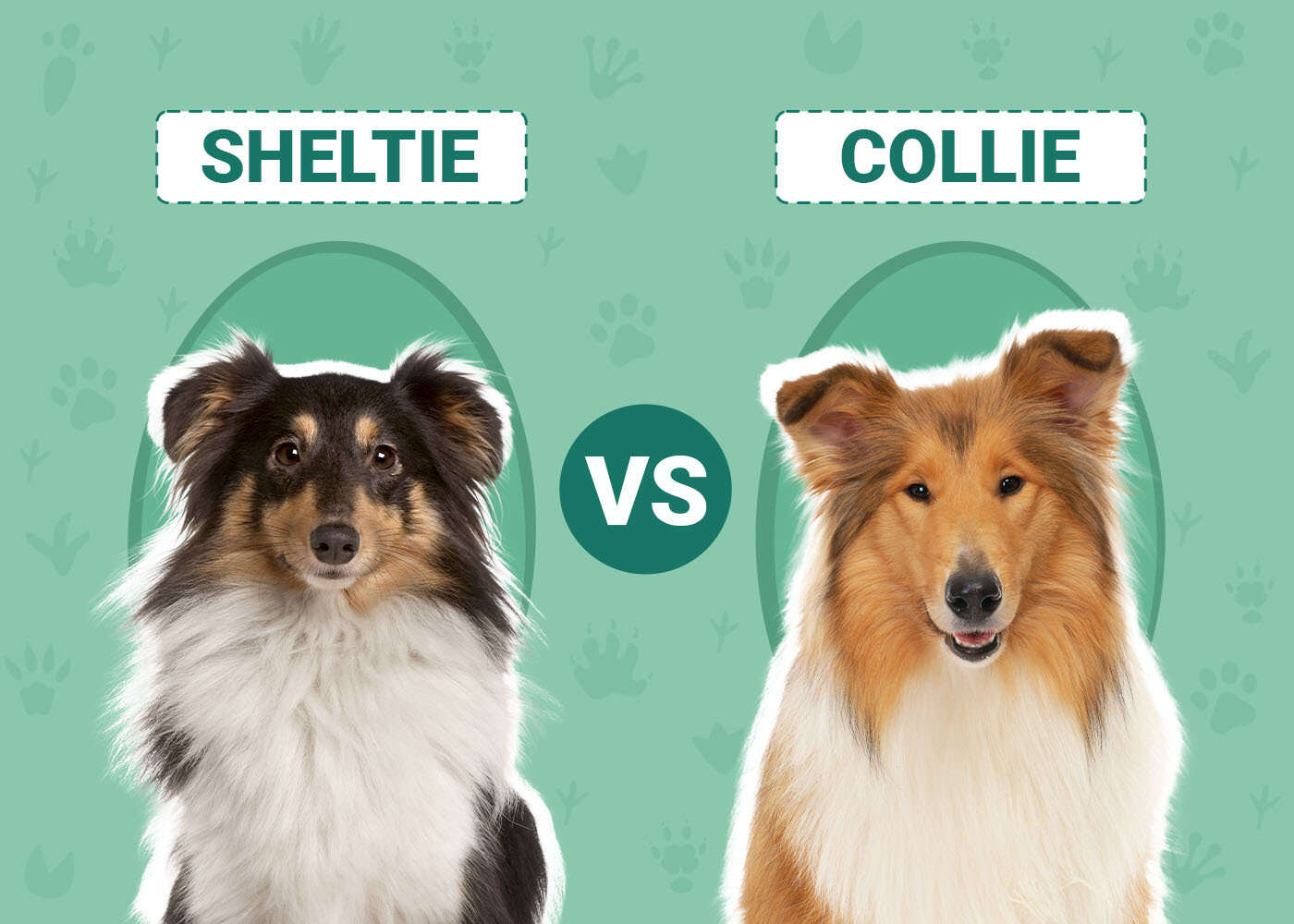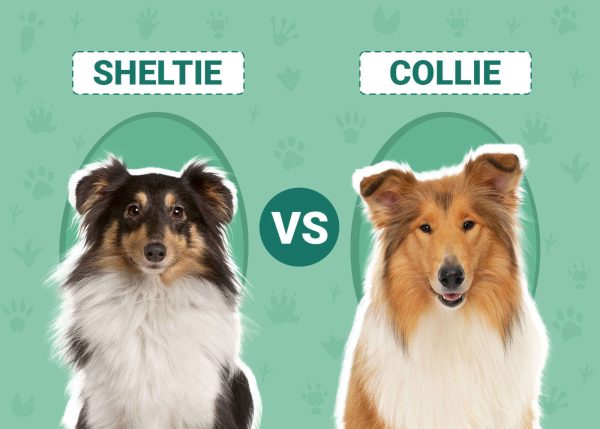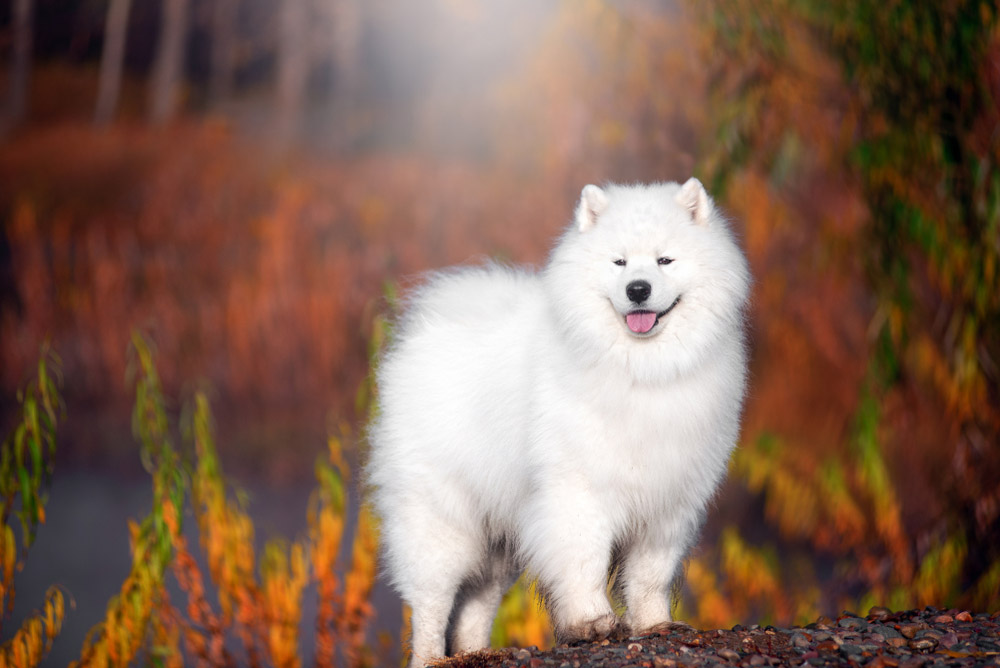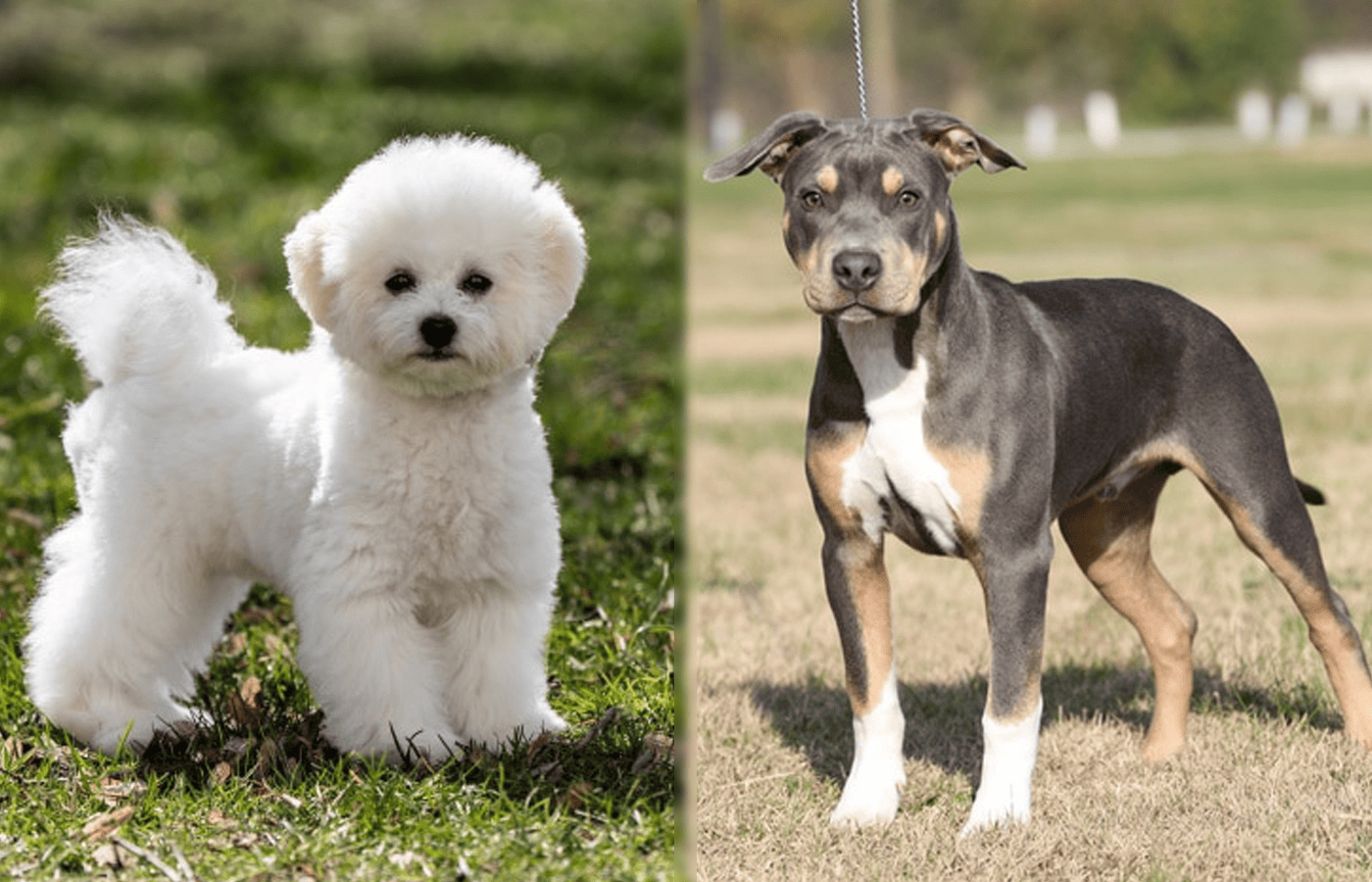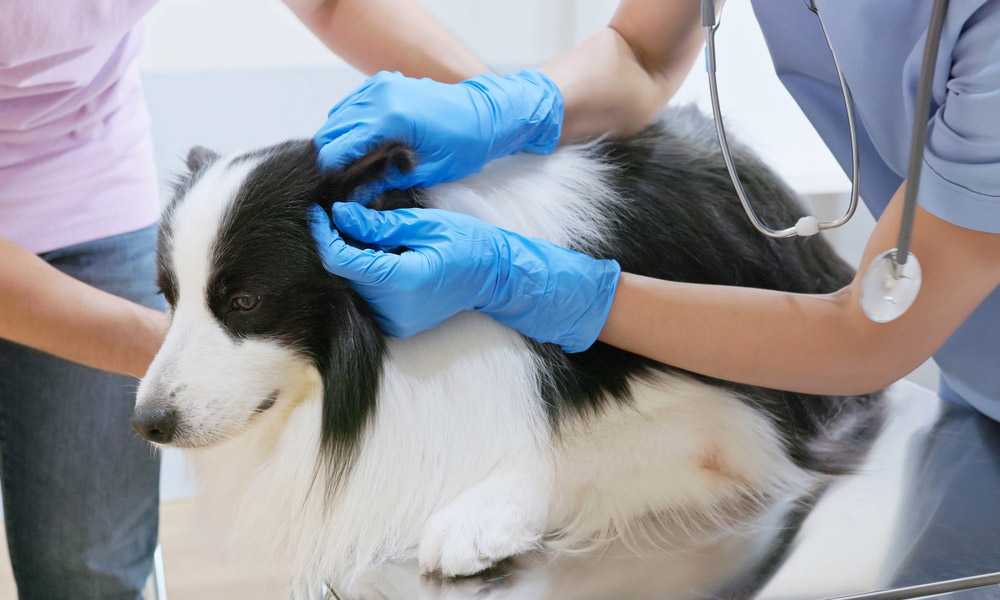Click to Skip Ahead
Shelties and Collies are intelligent and loving breeds that have captured the hearts of dog lovers around the world. While they share some similarities, such as their herding instincts and family-friendly nature, the two also have distinct differences. In this guide, we’ll take a closer look at the Sheltie and Collie breeds, exploring their unique traits, personalities, and care needs to help you decide which one might best fit your family and lifestyle.

Visual Differences
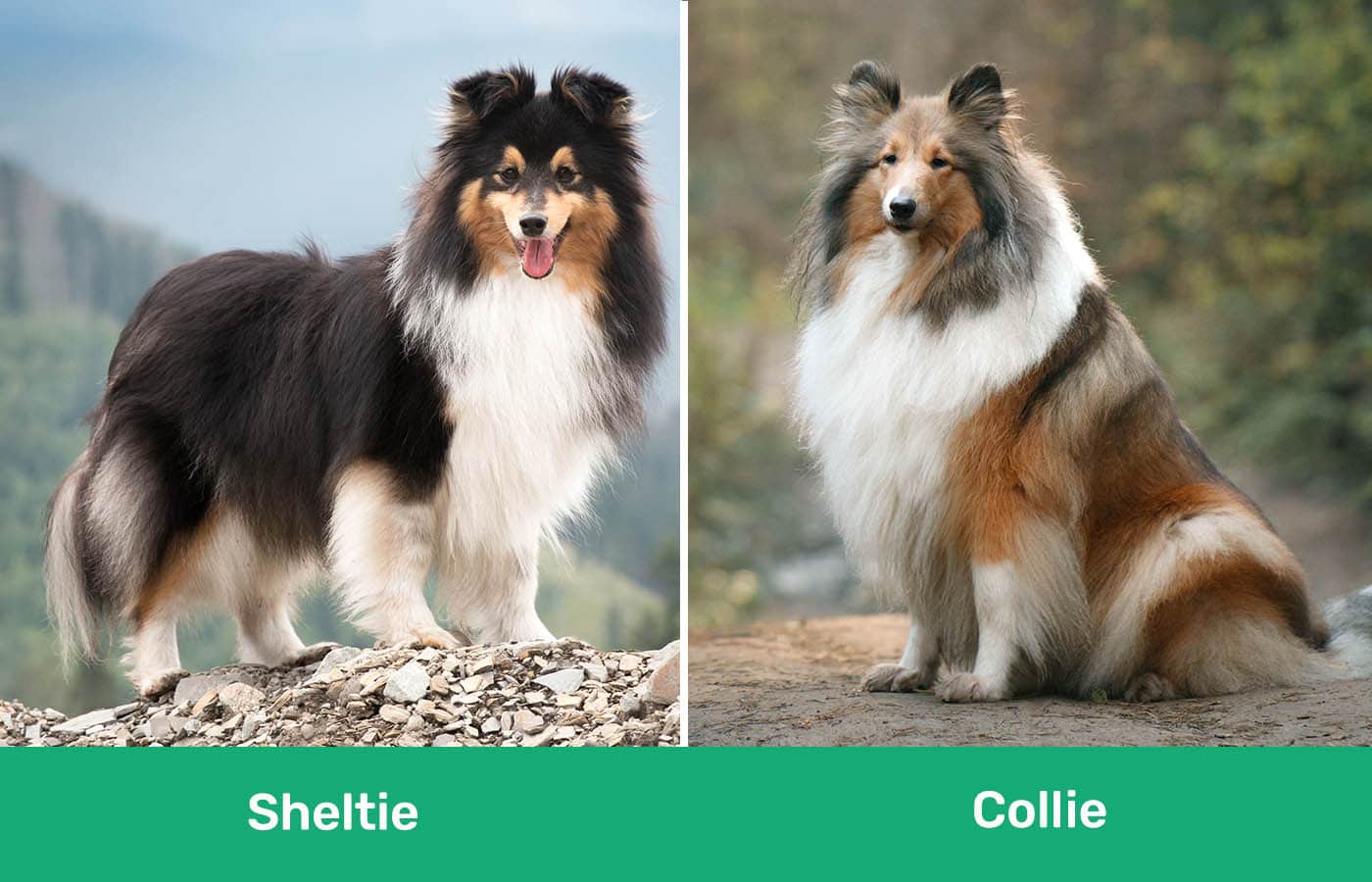
At a Glance
- Average height (adult): 13–16 inches
- Average weight (adult): 15–25 pounds
- Lifespan: 12–14 years
- Exercise: 1+ hours a day
- Grooming needs: Moderate
- Family-friendly: Yes
- Other pet-friendly: Often
- Trainability: Intelligent, loyal, eager to please
- Average height (adult): 21–26 inches
- Average weight (adult): 55–80 pounds
- Lifespan: 10–13 years
- Exercise: 2+ hours a day
- Grooming needs: Moderate
- Family-friendly: Yes
- Other pet-friendly: Often
- Trainability: Intelligent but stubborn
Sheltie Breed Overview
Personality / Character
Shelties, also known as Shetland Sheepdogs, are highly intelligent, loyal, and affectionate dogs. They form strong bonds with their families, making them excellent companions for people of all ages, including children. These energetic dogs enjoy participating in various activities such as agility training, herding, and obedience competitions, showcasing their versatility and natural abilities.
Shelties are also known for their sensitive nature and can be somewhat reserved around strangers. However, with proper socialization from an early age, they can become more confident and well-adjusted dogs.
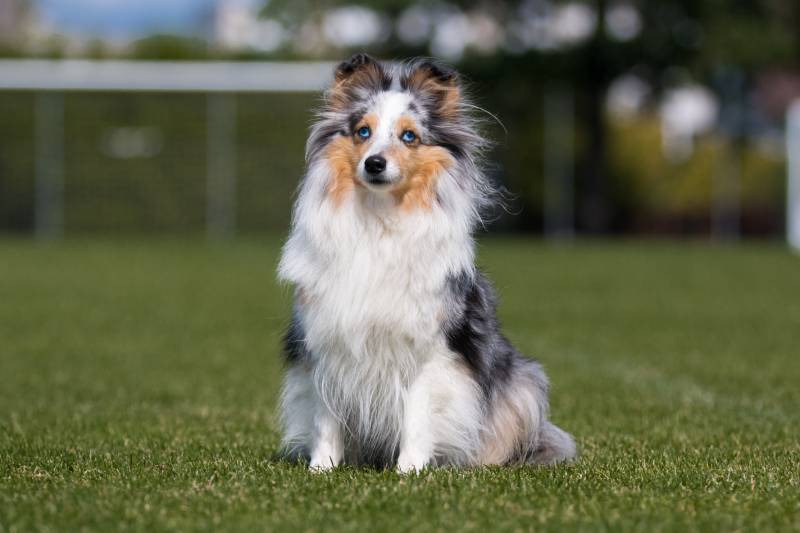
Training
Shelties are highly trainable, thanks to their intelligence and eagerness to please. They respond well to positive reinforcement and enjoy learning new tricks and commands. Training sessions should be fun, engaging, and consistent to ensure the best results.
Shelties’ high intelligence means that they can quickly pick up on cues and commands, making them excellent candidates for advanced obedience and dog sports. Their innate herding instinct also makes them great at activities that tap into these natural skills.
Health & Care
Shelties require regular grooming to maintain their long, double coat. Brushing should be done at least once a week to prevent matting and to keep their fur looking healthy. They are also prone to certain health issues, such as hip dysplasia, eye problems (including progressive retinal atrophy and cataracts), and hypothyroidism. Regular vet check-ups and preventative care are essential to ensure your Sheltie maintains optimal health.
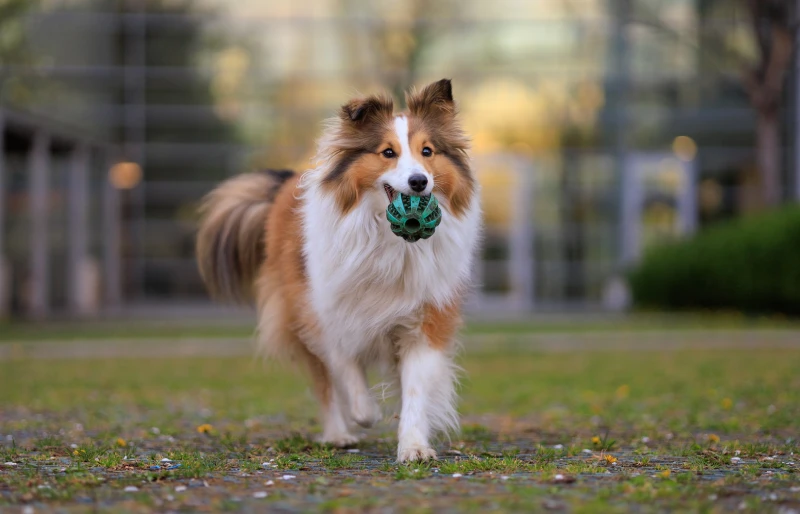
Suitable For
Shelties are best suited for families who can provide them with plenty of exercise, mental stimulation, and companionship. Their smaller size makes them adaptable to various living situations, including apartments, as long as they receive adequate daily exercise and mental enrichment. Shelties thrive when they are an integral part of the family and can spend quality time with their loved ones.
- Highly intelligent and trainable
- Loyal and affectionate with family members
- Good with children and other pets
- Smaller size makes them suitable for various living situations
- Excel in dog sports and activities
- Can be prone to certain health issues, such as hip dysplasia and eye problems
- Require regular grooming to maintain their coat
- May be reserved or shy around strangers
- High energy levels require daily exercise and mental stimulation
- Can be prone to excessive barking if not properly trained

Collie Breed Overview
Personality / Character
Collies are known for their gentle and friendly disposition, making them excellent family dogs. They get along well with children and other pets, creating a harmonious household environment. Collies are intelligent and have a strong herding instinct, making them great working dogs or competitors in dog sports like agility and obedience.
Their calm and patient nature also makes them suitable candidates for therapy or assistance work, as they can quickly form strong bonds with their handlers and provide comfort and support when needed.
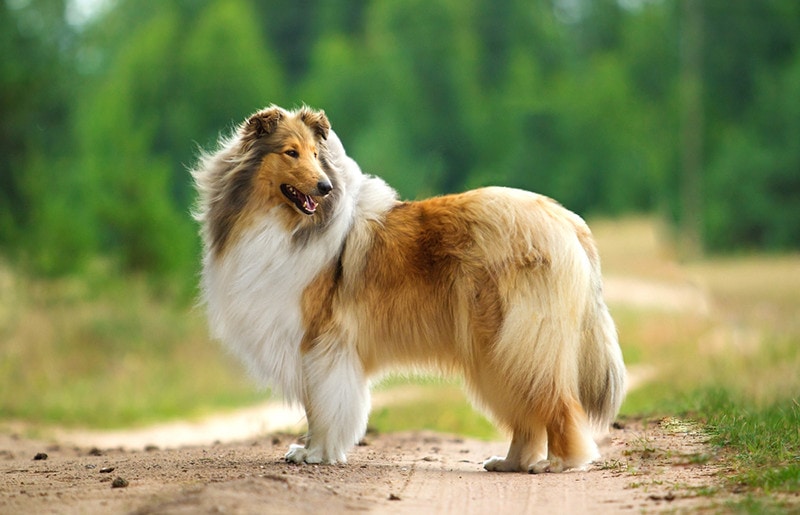
Exercise
Collies need a significant amount of daily exercise to stay healthy and happy. Long walks, play sessions, and dog sports are great ways to keep them physically and mentally stimulated. Their herding instincts may lead them to engage in activities such as chasing and rounding up other animals or even children, so it’s essential to provide them with appropriate outlets for their energy and natural abilities.
Training
While Collies are intelligent, they can sometimes be stubborn during training. Consistency, patience, and positive reinforcement are key to successfully training a Collie. They respond best to gentle, reward-based methods that make training an enjoyable experience for both the dog and the handler.
Socialization is also crucial for Collies, as it helps them become well-rounded and confident dogs that can adapt to various situations and environments.
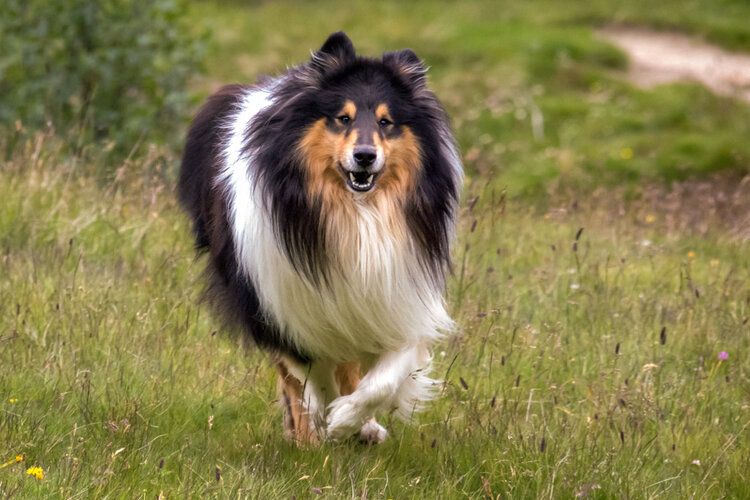
Health & Care
Collies require regular grooming to maintain their coat, which can be either rough or smooth. Weekly brushing will help prevent matting and keep their fur looking healthy. They are prone to certain health issues, such as hip dysplasia, eye problems (including progressive retinal atrophy and Collie Eye Anomaly), and dermatomyositis, a skin and muscle disease. Regular vet visits and preventative care are vital to ensure your Collie maintains optimal health throughout their life.
Suitable For
Collies are a great choice for active families who can provide them with ample exercise, mental stimulation, and love. Their gentle and friendly nature makes them ideal companions for households with children or other pets. Collies thrive in environments where they can be an active part of the family and participate in various activities that challenge their minds and bodies.
- Gentle and friendly disposition
- Excellent family dogs, good with children and other pets
- Intelligent with strong herding instincts
- Large size can be a deterrent for potential intruders
- Versatile breed that can excel in various dog sports and activities
- Can be stubborn during training
- Require significant daily exercise to stay healthy and happy
- Prone to certain health issues, such as hip dysplasia and eye problems
- Regular grooming is necessary to maintain their coat
- May display herding behavior towards small animals and children if not properly trained
Frequently Asked Questions
What is the origin of the Sheltie breed?
Shelties originated from the Shetland Islands in Scotland, where they were bred as herding dogs for small livestock like sheep and ponies.
What is the origin of the Collie breed?
Collies also originated in Scotland and were mainly used as herding dogs for larger livestock, such as sheep and cattle.
Although they share some similarities, Shelties and Collies are separate breeds. It is believed that Shelties may have been influenced by early Collies and other breeds like the Icelandic Sheepdog during their development.
Are Shelties and Collies hypoallergenic?
No, neither Shelties nor Collies are considered hypoallergenic, as they both shed and produce pet dander.
How do Shelties and Collies interact with other animals?
Both breeds generally get along well with other pets, but their herding instincts may cause them to try to herd or chase smaller animals.
What colors can Shelties and Collies be?
Shelties come in various colors, including sable, black, and blue merle. Collies can be sable, tricolor, blue merle, or white with colored markings.
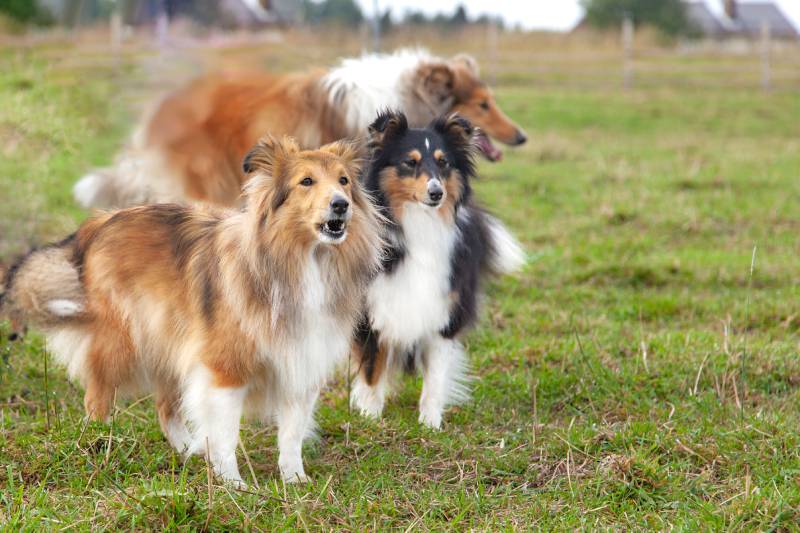
Are Shelties and Collies prone to separation anxiety?
Both breeds can develop separation anxiety if left alone for extended periods, as they form strong bonds with their families and thrive on companionship.
Are Shelties and Collies suitable for first-time dog owners?
Both breeds can be suitable for first-time dog owners, but they require commitment to training, exercise, and grooming. Potential owners should research and understand the needs of each breed before committing.
Can Shelties and Collies live in apartments?
While both breeds can adapt to apartment living, they will need regular exercise and mental stimulation to prevent boredom and destructive behavior.
Are Shelties and Collies easy to housebreak?
Both breeds are intelligent and can be housebroken relatively easily with consistent training and positive reinforcement.
Can Shelties and Collies be service or therapy dogs?
Yes, both breeds have the intelligence, temperament, and trainability to serve as service or therapy dogs with proper training and certification.

Which Breed Is Right for You?
Both Shelties and Collies make wonderful family pets, each with their own unique characteristics and care requirements. If you’re looking for a smaller, highly trainable dog, the Sheltie might be the perfect fit. However, if you prefer a larger, more independent breed, the Collie could be your ideal companion. Whichever breed you choose, you’ll be welcoming a loyal, loving, and intelligent friend into your life.
Conclusion
The Sheltie and Collie are two amazing breeds that have been popular for hundreds of years. Despite some similarities, they are distinct breeds with different coat types, personalities, activity levels, and care requirements. There’s no bad choice. The only thing that matters is which breed is the right fit for you and your family.
Featured Image Credit: (L) Lisjatina, Shutterstock | (R) Juli G, Shutterstock

